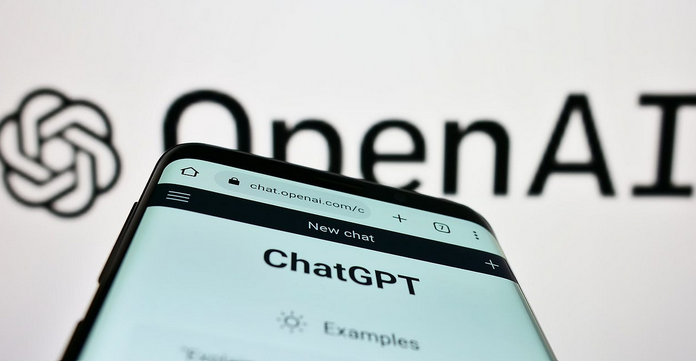Stargate Project Unveiled: How the US’s $500 Billion AI Power Play Challenges the UK to Lead in Sustainability and Ethics

The landscape of artificial intelligence (AI) is undergoing a seismic transformation, and the world is paying attention. At the heart of this shift is the US’s ambitious $500 billion investment in AI infrastructure, spearheaded by an extraordinary collaboration of tech giants. The Stargate Project, led by OpenAI and backed by companies like Microsoft, SoftBank, Oracle, Nvidia, and MGX, represents a game-changing leap forward in AI infrastructure. With an initial $100 billion earmarked to launch the first phase, Stargate is not just a technological endeavour but a bold statement of intent by the United States.
This unprecedented investment comes against a backdrop of global competition and strategic positioning, with implications that ripple far beyond American borders. For the UK, these developments present both a challenge and an opportunity: How does Britain carve out its place in an AI-driven future dominated by such colossal projects? The stakes have never been higher, and the choices made today will shape the global AI landscape for decades to come.

Stargate: A New Frontier in AI Infrastructure
Unveiled with much fanfare, the Stargate Project represents the most significant AI infrastructure investment in history. Set to culminate in 2028 with the launch of a supercomputer capable of 5 gigawatts of processing power, the initiative will include 20 data centres across the United States. Each of these centres will span hundreds of acres and feature state-of-the-art technology designed to support advanced AI models and applications.
The initiative is expected to create hundreds of thousands of jobs, drive innovation, and ensure the US maintains its dominance in the global AI race. However, the scale of the project also raises pressing concerns about its environmental impact and the sustainability of its energy consumption. With AI systems notorious for their insatiable appetite for computational power, Stargate could strain America’s energy grid, prompting calls for more robust green energy initiatives.
The announcement of Stargate coincided with former US President Donald Trump’s return to office. On his second day, Trump rolled back several AI regulatory measures, calling them “barriers to progress.” While critics warn of the potential risks of unbridled AI development, Trump’s approach underscores a broader trend: the prioritisation of innovation over caution. This shift, combined with the Stargate Project’s sheer scale, positions the US as the unequivocal leader in AI infrastructure development.
The UK’s Response: Compete or Collaborate?
As the US sets the pace, the UK finds itself at a crossroads. Should it attempt to compete with America’s massive investments in AI infrastructure, or focus on carving out a unique niche that complements the global AI ecosystem? The answer lies in understanding Britain’s strengths and the broader dynamics of the AI race.
The Infrastructure Gap
The UK lacks the financial firepower and land resources to rival projects like Stargate. However, this doesn’t mean Britain is out of the game. Instead of mirroring the US model, the UK could focus on areas where it holds a strategic advantage, such as governance, ethics, and sustainability. By positioning itself as a leader in responsible AI development, Britain can attract global partners and investments while avoiding the pitfalls of unchecked expansion.
Leading Through Regulation
One of the UK’s most significant opportunities lies in its ability to shape the regulatory landscape for AI. The establishment of the UK AI Safety Institute is a testament to the government’s commitment to ethical innovation. By crafting clear, transparent, and forward-thinking regulations, the UK can set global standards for AI governance.
In an era of rapid technological advancement, concerns about AI’s impact on employment, security, and privacy are mounting. The UK’s emphasis on balancing innovation with responsibility could become its defining contribution to the global AI landscape. Moreover, as companies and governments worldwide grapple with the complexities of AI deployment, Britain’s expertise in regulation and ethics could make it an indispensable partner.
The Energy Dilemma
One of the most pressing challenges associated with large-scale AI projects like Stargate is their enormous energy consumption. Supercomputers and data centres require vast amounts of electricity to operate, and the US’s energy grid may struggle to keep pace with the growing demand. In contrast, the UK has an opportunity to position itself as a leader in sustainable AI development.
Embracing Green Energy
By investing in renewable energy solutions and energy-efficient AI technologies, the UK can mitigate the environmental risks associated with AI infrastructure. Collaborations with green energy leaders and the development of advanced data centres powered by renewable resources could set a new standard for sustainable AI.
This approach not only addresses environmental concerns but also enhances Britain’s reputation as a forward-thinking, responsible player in the AI arena. As global demand for sustainable solutions grows, the UK’s focus on green AI could become a powerful differentiator.
Learning from Stargate’s Scale
The massive energy requirements of Stargate highlight the need for innovative solutions. The UK could spearhead research into AI systems that require less computational power or that rely on more efficient algorithms. These advances would not only benefit Britain but also offer solutions to global challenges in AI energy consumption.
Collaboration as a Strategy
Rather than competing head-on with the US, the UK could adopt a collaborative approach, leveraging its strengths to complement American initiatives. For example, Britain’s expertise in governance and sustainability could make it an attractive partner for projects like Stargate. By fostering international partnerships, the UK can ensure its voice is heard in shaping the future of AI.
Building Alliances
Collaboration doesn’t mean subservience. The UK can assert its influence by building alliances with other nations and organisations that share its commitment to ethical AI development. By taking a leadership role in international forums and initiatives, Britain can help shape the global AI agenda.
Innovation through Partnership
The Stargate Project demonstrates the power of public-private partnerships to drive innovation. The UK could replicate this model on a smaller scale, partnering with leading tech companies and universities to create centres of excellence in AI research and development. These partnerships could focus on niche areas, such as healthcare AI or AI for climate change, where Britain has the potential to lead.
A Global Perspective on AI
While the US’s Stargate Project is a monumental step forward, it’s essential to consider its implications in a broader context. The AI race is not just about technological supremacy; it’s also about defining the values and principles that will guide AI development worldwide.
The Role of International Cooperation
AI is a global phenomenon, and its challenges require global solutions. From addressing the environmental impact of AI systems to ensuring equitable access to AI technologies, international cooperation will be crucial. The UK, with its strong diplomatic ties and leadership in governance, is well-positioned to play a central role in these efforts.
The Challenge of Ethical AI
The rapid development of AI raises ethical concerns that transcend national borders. Issues such as algorithmic bias, data privacy, and the potential misuse of AI technologies require a coordinated international response. The UK’s focus on regulation and ethics positions it as a potential leader in addressing these challenges.
Balancing Competition and Collaboration
The global AI race is often framed as a zero-sum game, but the reality is more nuanced. While competition drives innovation, collaboration ensures that the benefits of AI are shared widely. The UK can advocate for a balanced approach that prioritises both innovation and inclusivity.
The Path Forward
As the AI landscape continues to evolve, the choices made today will shape the future for generations to come. The US’s Stargate Project is a bold and ambitious endeavour that cements America’s position as a global leader in AI. However, it also raises critical questions about sustainability, governance, and the role of international collaboration.
For the UK, this moment represents both a challenge and an opportunity. By focusing on its strengths and embracing a collaborative approach, Britain can carve out a unique and influential role in the AI ecosystem. Whether through pioneering regulation, championing sustainability, or fostering international partnerships, the UK has the potential to shape the future of AI in profound and meaningful ways.
The race is on, but it’s not just about who finishes first. It’s about ensuring that the journey benefits all of humanity. And in that race, there’s room for everyone to win.


















